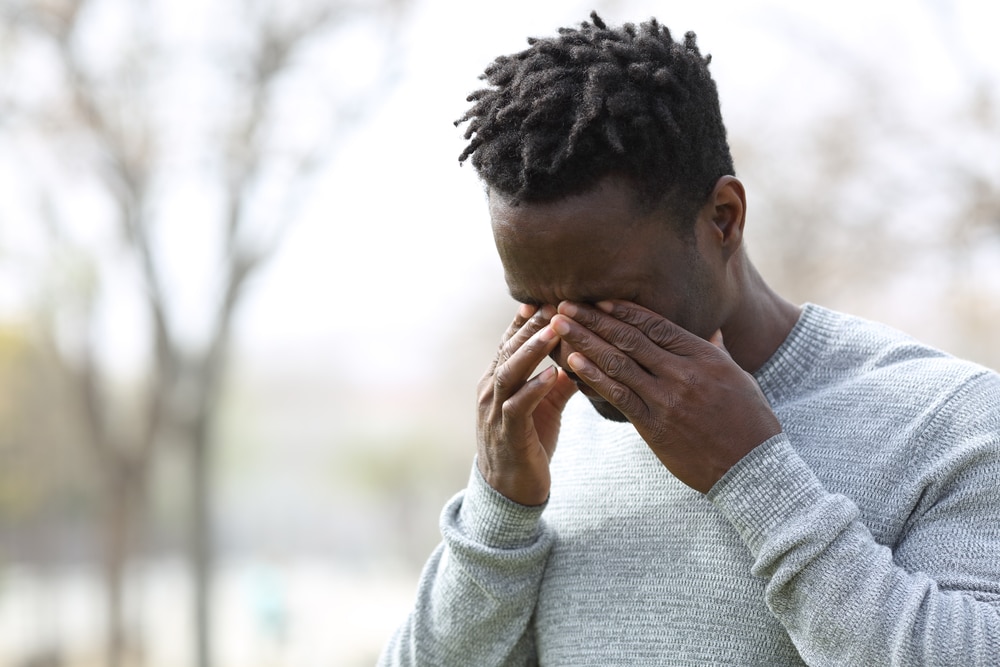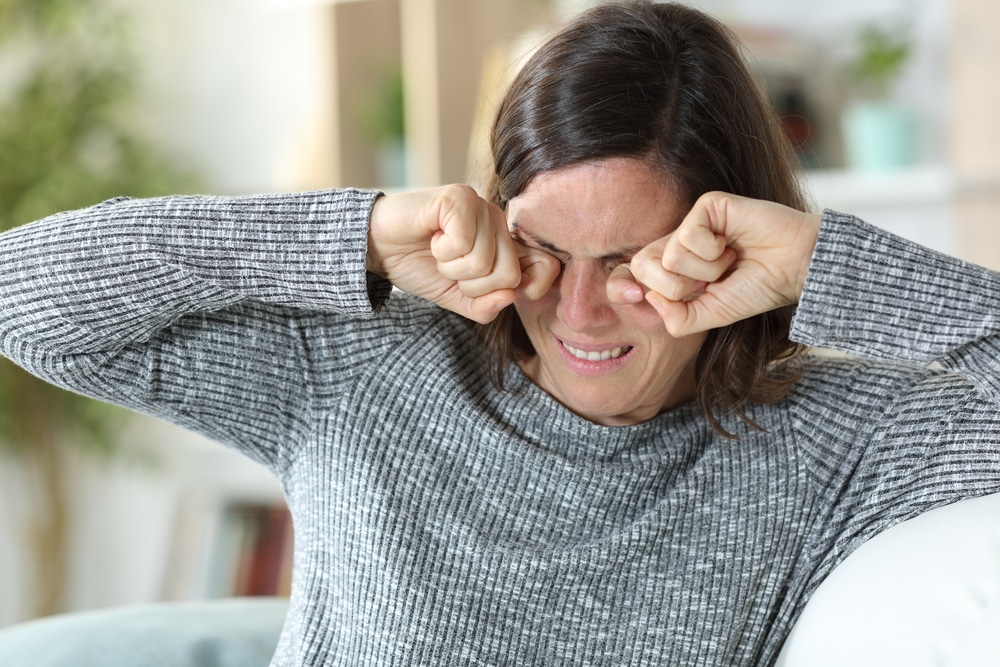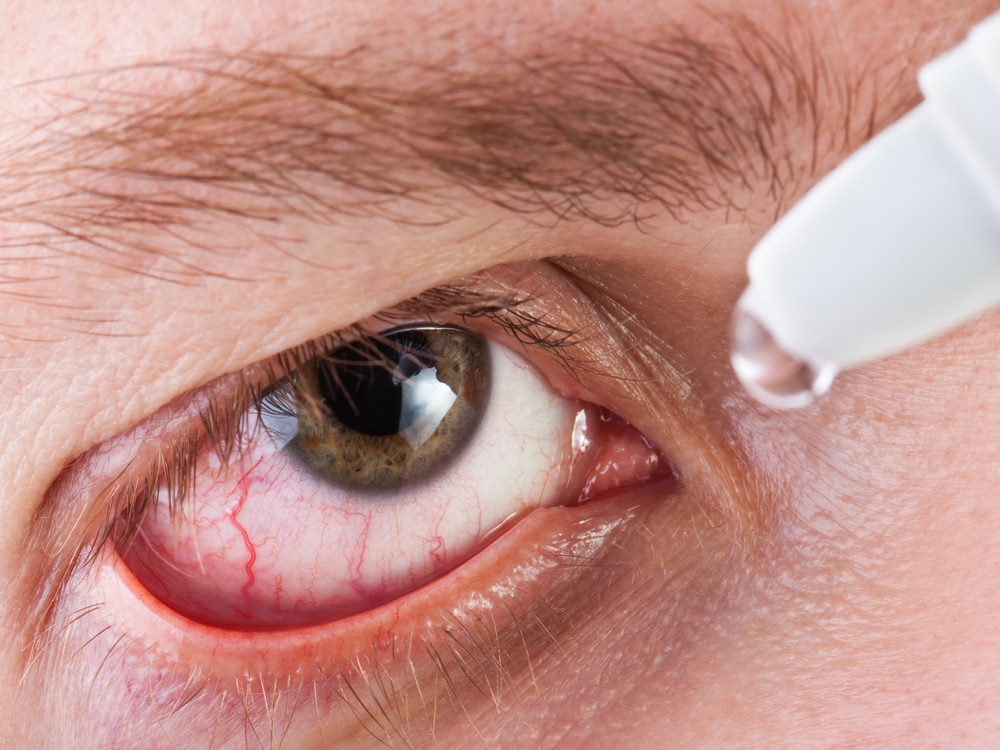While patients can experience dry eyes all year, it may come as no surprise that the condition is more common in colder months. According to the Journal of Ophthalmology, seasonal variations, such as lower indoor humidity and high winds, can lead to dry eyes and increased discomfort in patients. Unless you plan on moving to a warmer environment, there is no way to change the weather. Still, there are several ways to treat and prevent the pain, itching, and redness of dry eyes in the winter months. Let’s explore how to prevent dry eye in winter!
What Is Dry Eye Syndrome?
Dry eye is a common condition that affects nearly 16 million people in the United States each year. Although dry eyes are uncomfortable and negatively impact a patient’s quality of life, they don’t typically require medical intervention.
There are many reasons a person may experience dry eyes throughout the year, especially in the colder months. The most common include:
- Exposure to the cold wind that blows into the face and drys out eyes
- Moisture reduction from indoor heating systems
- A patient’s glands don’t produce enough tears to moisten the eyes
- Tears dry too fast
- Side effects of certain medications
The most common symptoms of dry eye include:
- Redness or irritation in or around the eyes
- Feeling that something is in your eye
- Increased light sensitivity
- Stinging, burning, and itching sensations
- Blurry vision
- Eye fatigue
How Do You Treat Dry Eyes in Winter?
While prevention is the best method to deal with any medical condition, most patients don’t realize they are at risk until they deal with dry eyes for the first time. That’s why understanding your treatment options is essential. In some cases, you’ll need to use a combination of the following treatments:
- Artificial Tears
Artificial tears are the most common treatment option. They provide relief by restoring natural moisture to your eyes. Not only are they effective, but they are also easy to access. They can be found over-the-counter at most drugstores and grocery stores. Since artificial tears can be applied up to six times a day, they provide a treatment option that lasts.
Recommended Brands:
- Candor
- I-Med Pharma
- Labtician-Thea
Talk to your eye doctor about contacts-friendly options before using artificial tears with contacts. You should also read the label carefully before applying. Since some brands contain preservatives, frequent use can lead to further eye irritation. Talk to your ophthalmologist if you find yourself needing artificial tears more than the recommended dosage on your eye drops.
- Eye Ointments
Eye ointments are another treatment option for dry eyes. They are applied to your inner lower lash line and offer thicker protection than eye drops. Because of their thicker consistency, most patients wait to apply ointments before bedtime. This helps prevent blurry vision.
Recommended Eye Ointments:
If your discomfort continues or you need recommendations for the best eye ointment for your eyes, contact your ophthalmologist to schedule an appointment.
- Indoor Humidifiers
One of the most common causes of dry eyes in winter is the use of indoor heaters. Of course, you can’t simply shut off the heat because it bothers your eyes. That’s why it’s essential to keep the air inside your home moist. You can restore some moisture into your air with a humidifier. However, you need to be careful with how you use them.
Failing to clean your humidifier correctly can lead to more significant health issues. Since the moisture in humidifiers can attract mold and bacteria, it is imperative to keep these machines clean. Read the manufacturer’s recommendations and follow them closely to avoid moisture-driven illnesses. Place your humidifier in a safe place, especially if you have small children in your home.
- Warm Compresses
Finally, warm compresses can help treat significant dry eye symptoms. If your eyes are highly irritated and red, soak a washcloth in warm water and apply it to your eyes for 10 minutes or try one of our recommended eye masks. This helps soothe discomfort and reduce redness, especially for patients suffering from dry eyes in winter.
Recommended Eye Masks:
How Can I Prevent Dry Eyes in Winter?
As mentioned earlier, the best way to handle dry eyes is to prevent them altogether. Here are some steps you can take this winter to keep your eyes moist and irritation-free:
- Avoid facing blow dryers directly into your eyes. If possible, allow your hair to air-dry instead of using a blow dryer in the winter.
- Reduce your indoor temperature. Keep your home as cool as you can tolerate, reducing the effects of indoor heaters. Instead of pumping up your heat a few degrees, try throwing on a sweatshirt or cuddling under a blanket.
- Consider adding omega-3 fatty acids to your diet. Found naturally in foods like nuts and fish, this can help reduce dry eye. You can also find dietary supplements, such as fish oil, that contain omega-3 fatty acids. Always check with your doctor before adding any supplements to your daily regimen.
- Wear glasses when going outdoors. This can help protect your eyes from winter winds that are a common cause of dry eye.
- Avoid certain medications that can cause dry eyes, especially antihistamines. If you need to use these medications during the winter months, consider adding artificial tears to your daily routine while taking them.
- Stay hydrated. Drink plenty of water.
- Reposition your furniture, so you aren’t sitting in a place where heat vents blow directly towards your face. Avoid sitting too close to heating vents.
- If your symptoms continue despite following these common prevention methods, talk to your doctor. In some cases, prescription medications such as antidepressants, birth control pills, and blood pressure medications can cause dry eyes. Never stop taking these medications without consulting with your doctor. Schedule an appointment with your ophthalmologist to find an effective solution if alternative medicines aren’t available.
Do I Need to See a Doctor for Dry Eye?
Dry eye symptoms related to weather changes aren’t typically a cause for concern. However, if at-home treatments and preventative methods don’t improve your condition, you may want to talk to your eye doctor for relief. Your doctor can prescribe a medical-strength eye drop or ointment or other treatment options to help restore the moisture to your eyes.
Several underlying medical conditions can lead to dry eyes. Talk to your doctor if you experience dry eyes with any of the following:
- Sjögren’s syndrome
- Meibomian gland dysfunction
- Vitamin A deficiency
- Eye infections
Talk to an Eye Specialist Today for More Information
Dry eyes are not uncommon in winter. Cold temperatures, dry winds, low humidity, and increased use of indoor heating systems can quickly dry the eyes. Avoid the irritation and discomfort of dry eyes this winter by taking the steps mentioned above to prevent this common problem. If your dry eyes persist, contact one of our eye specialists to find an effective way to restore the moisture to your eyes.






